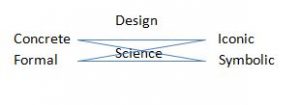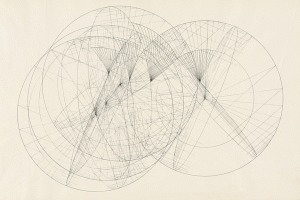09.15.2016
Reading 1
Nigel Cross, “Designerly Ways of Knowing”
- As mentioned in the article, the three criteria of education “Value, self-awareness, cognitive perception” to gain knowledge, and well trained person doesn`t mean he/she is educated. Isn`t the knowledge is reached by the students` experience which is part of the reality? Knowledge is facts, information, and skills acquired by a person through experience or education; the theoretical or practical understanding of a subject
- In term of design products and the design process. Is there direct or indirect effect to the reality, and its existing?
- In Piaget`s and Burner`s models of the cognitive and intellectual development, Piaget`s stages are concrete which is mature understanding of the reason and effect, Formal is the abstracted logical thinking. Burner`s has the Iconic which is the mental images as the sectional drawing of Johan Van Den Berghe, Symbolic is the formation of knowledge. As shown is the intersection of all stages is it possible to have the 4 stages combined together to be relevant to design or science?


Reading 2
Johan Verbeke, “This Is Research By Design”
- Does the concept of Zeewu and Glanville “knowledge for change” can be reached by “knowledge of what is”, since architecture is multi- discipline where it’s constructive process?
- What does determine the quality and the level of the design/ the research in the three possible situations?
- In the third situation, how does indicate the Research by design?
